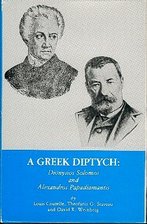Address to the 9th World Assembly of Religions for Peace
(Vienna,
22 November 2013)
“How
good and how pleasant it is for brothers and sisters to dwell
together in unity.” (Psalm 133.1)
Your
Beatitude;
Your Excellencies;
Your Eminences;
Distinguished guests;
Ladies and gentlemen;
Your Excellencies;
Your Eminences;
Distinguished guests;
Ladies and gentlemen;
On
the occasion of the 9th World Assembly facilitated by Religions for
Peace, we bring you greetings of love and peace from the Ecumenical
Patriarchate, the first See of the Orthodox Church. We are honored to
be with you in Vienna, and we give thanks to God for the opportunity
to address this esteemed assembly.
We
extend a sincere thanks to Dr. William Vendley, Secretary General,
and the planning committee for inviting us to share our thoughts
about working together for human dignity and peace. Before us we have
an example of peace in the making: Religions for Peace and the King
Abdullah International Centre for Interreligious and Intercultural
Dialogue (KAICIID) have already demonstrated the ability to mobilize
and collaborate to make this week of meetings a reality.
This
inspires us to recall the wisdom of an ancient Psalm: “Behold, how
good and how pleasant it is for brothers and sisters to dwell
together in unity”! The ultimate goal of this assembly is to create
a new paradigm to embrace the essence of peace and unity, which
exists in all of humanity. Indeed, “how good and pleasant” that
day will be when we experience such fellowship, where everyone will
be free to worship God in their own way. Let us leave this place
today and walk the path toward that peace.
Last
November, we took a step along that path when we were gathered in
this very city for the inauguration of the King Abdullah Bin
Abdulaziz International Centre for Interreligious and Intercultural
Dialogue. Looking back today, there have been many accomplishments on
our journey toward peace since that gathering. Furthermore, just a
few weeks after our address in Vienna last year, we released an
encyclical calling for 2013 to be the “Year of Global Solidarity.”
The need to do so was increasingly clear:
We
discriminate against one another by means of fanaticism with regard
to religious and political convictions, by means of greed in the
acquisition of material goods, and through expansionism in the
exercise of political power. These are the reasons why we come into
conflict with one another.
We
are not the first generation of humanity to face such challenges. In
313 of the Christian Era, emperors Constantine and Licinius met
face-to-face for a dialogue on the injustice of persecuting minority
religions. Three centuries of murder and discrimination had become
detrimental to all peoples living in those societies. As a result,
the Edict of Milan was signed into law, granting freedom of religion
to all members of their respective communities. The document itself
tells us the story behind its creation: “. . . for the sake of
peace in our times, that each one may have the free opportunity to
worship as one pleases; this regulation is made that we may
not seem to detract from the dignity of any religion . . .”
“For
the sake of peace in our times,” we too call for the “free
opportunity to worship” as one pleases. This fundamental human
right is the cornerstone for building solidarity between peoples and
nations. It is the most essential element for building peace. We must
allow individuals to worship God freely and without reprisals. We
cannot pretend that we respect the dignity of another human being, if
we do not allow them to worship God peacefully.
Seventeen
centuries have come and gone since the Edict of Milan was enacted.
Yet, unfortunately, the world remains vulnerable to the same
temptation of denying others their basic human right of freedom of
worship. In recent months, the intensity and frequency of persecution
against minority faiths has increased in virtually every corner of
the planet.
Certainly,
demands for tolerance from all religious leaders and peoples are
needed; however something more remains: namely, loving our neighbor.
Merely tolerating one another only further emphasizes the pervasive
goal of dominance. If one must tolerate the other, the one tolerated
is viewed as less valuable than the one who tolerates. This is a
great deception and danger. We believe that religious leaders must
move . . . beyond mere tolerance . . . to love. When we embrace and
welcome ‘the other’ with genuine concern and love – as if ‘the
other’ is our very own neighbor and our very self! – then we have
the foundation for creating lasting peace in the world.
To
love another is to welcome them into your life and ‘home.’ To
love another is to prevent their harm through discrimination and
contempt. It is to end aggression and war. When our ‘enemy’
becomes important and invaluable to us; when our ‘enemy’ is
regarded as a reflection of ourselves, we no longer face an enemy,
but a neighbor, a friend, an ally. When neighbors join together to
seek the benefit of ‘the other,’ we begin to live in solidarity
with all humanity.
Daily
news reports would lead us to believe we have nothing but ‘enemies.’
However, there are glimmers of hope that have emerged this year, in
spite of the great difficulties that have been presented. For
example, this year, the King Abdullah Bin Abdulaziz International
Centre for Interreligious and Intercultural Dialogue has begun a
process of examining the “Image of the Other” through regional
workshops. These workshops have explored shared values and best
practices for educating people about dialogue and peace. This
flagship program will be continued in the coming years.
Moreover,
this past March, an outstanding effort towards protecting vulnerable
children in Uganda was undertaken through a strategic partnership
between KAICIID and Religions for Peace. This effort is literally
saving the lives of Uganda’s children through basic nutrition and
health education. We are all sharing in the well-being of Uganda when
we care for her children.
In
April of this year, Religions for Peace convened a meeting of diverse
Syrian religious leaders, who established a Religions for Peace
Council in Syria. This was a courageous step initiated in a place
where peace is so grievously threatened.
In
September, His Holiness Pope Francis called a peace vigil for the
nation of Syria to call attention to the strife and bloodshed there.
He reminded the nations “War always marks the failure of peace, it
is always a defeat for humanity.”
And
today, we are gathered here, together again, in this city. We are
shoulder-to-shoulder, standing for those things we believe in, and
calling for a new way of loving our neighbor. As we closed our
encyclical last December, declaring 2013 as the Year of Global
Solidarity:
Let
us encourage one another during this Year of Global Solidarity to
make every conscious effort – as individuals and nations – for
the reduction of the inhumane consequences created by the vast
inequalities as well as the recognition by all people of the rights
of the weakest among us so that everyone may enjoy the essential
goods necessary for human life. Thus, we shall indeed witness – at
least to the degree that it is humanly possible – the realization
of peace and good-will on earth.
Therefore,
thanks be to God who created humanity with the capacity to live in
peace. May we all find this peace in our hearts and share it with the
world. We must not cease and cannot be defeated in our efforts to
secure human dignity and advocate the well-being of all our neighbors
in the world.
God
bless you all.

































